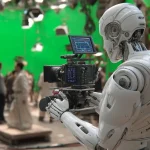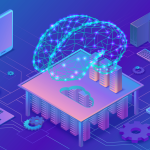Introduction
The relationship between politics and technology has transformed drastically over the past decade. Artificial intelligence, social media algorithms, and digital communication strategies have become powerful tools that influence elections, policy-making, and even international diplomacy.
In a world where data dictates public opinion, political leaders are learning to adapt to this new reality. The rise of digital influence has made leadership more dynamic, but also more vulnerable to manipulation and misinformation.
AI’s Growing Role in Political Decision-Making
Artificial intelligence is now deeply embedded in governance and political strategy. Governments use predictive analytics to forecast economic outcomes, detect threats, and monitor social sentiment across the internet. This data-driven approach allows for faster, more efficient decision-making in a rapidly changing world.
However, the same technology that enhances decision-making can also undermine democracy. When algorithms control the flow of information, they can be exploited to distort truth, sway voters, or suppress opposing views—posing serious ethical and societal concerns.
The Influence of Social Media on Global Leadership
Social media platforms have become digital stages where political power is performed and challenged. Leaders communicate directly with millions, bypassing traditional media channels. This has made politics more personal, but also more volatile.
Public sentiment is now shaped in real-time by trending hashtags, viral videos, and influencer endorsements. As a result, political narratives shift faster than ever, and the line between public discourse and propaganda grows increasingly thin.
Celebrity Power in Political Communication
Celebrities often act as unofficial ambassadors for political ideas, bridging the gap between entertainment and governance. Their voices amplify causes ranging from climate change to human rights, giving politics a cultural edge that resonates with younger audiences.
Yet, celebrity involvement in politics is not without criticism. Some argue that fame-driven activism simplifies complex issues, turning serious global challenges into social media moments rather than long-term commitments.
Technology and Election Campaigns
Elections are no longer fought solely on debate stages or through television ads. They are now data battles fought through social media analytics, targeted advertising, and digital persuasion. Campaign managers rely on machine learning tools to segment voters and predict behavior.
This digital strategy has made elections more precise but also more intrusive. The misuse of personal data and the spread of misinformation during campaigns have sparked global debates about digital ethics and privacy.
Global Diplomacy in the Age of AI
Diplomatic relations are evolving as AI-driven analytics and cyber intelligence reshape communication between nations. Governments use advanced technologies to anticipate crises, detect misinformation, and negotiate complex international agreements.
However, the rise of AI diplomacy introduces new risks. Cyber espionage, data breaches, and autonomous misinformation campaigns can destabilize trust between nations, leading to digital arms races and new forms of geopolitical conflict.
The Human Element in a Digital Age
As algorithms and bots dominate public discourse, human empathy and judgment remain crucial in leadership. No machine can replace the intuition, compassion, or moral responsibility required to guide societies through crises.
Leaders who rely solely on data risk losing touch with the people they represent. Maintaining the balance between technological efficiency and human values will define the next generation of global governance.
FAQs
How does AI impact political decisions?
AI assists in analyzing data, predicting outcomes, and identifying patterns that help leaders make informed policy choices.
Why is social media so influential in modern politics?
It provides direct access to citizens and shapes public opinion instantly, often bypassing traditional news outlets.
Can technology make elections fairer?
While technology increases efficiency, it also introduces risks like data manipulation and misinformation that threaten fairness.
What is AI diplomacy?
AI diplomacy involves using artificial intelligence to manage international relations, predict global risks, and streamline negotiations.
How can political leaders maintain authenticity in the digital era?
By prioritizing transparency, empathy, and accountability, even while embracing digital tools for communication and governance.
Conclusion
Artificial intelligence and social media are transforming the nature of leadership, reshaping how power is built, maintained, and challenged across the globe. The leaders of tomorrow will not only need to understand politics but also the digital architectures that shape perception and influence.
To ensure a fair and informed global society, humanity must balance innovation with responsibility—making technology a tool for empowerment, not manipulation. The true strength of leadership lies in merging the precision of AI with the conscience of humanity.







